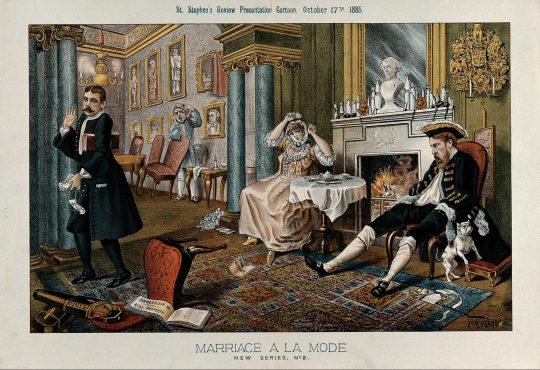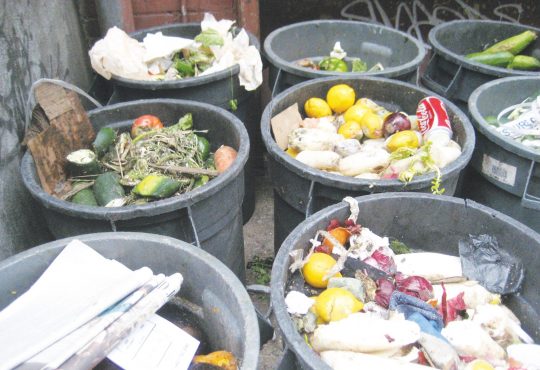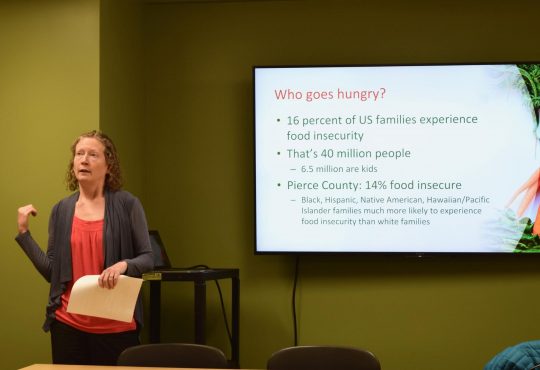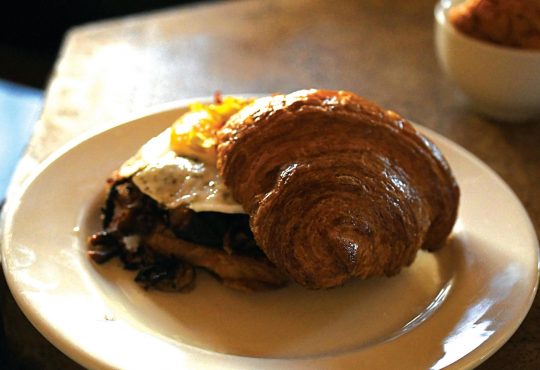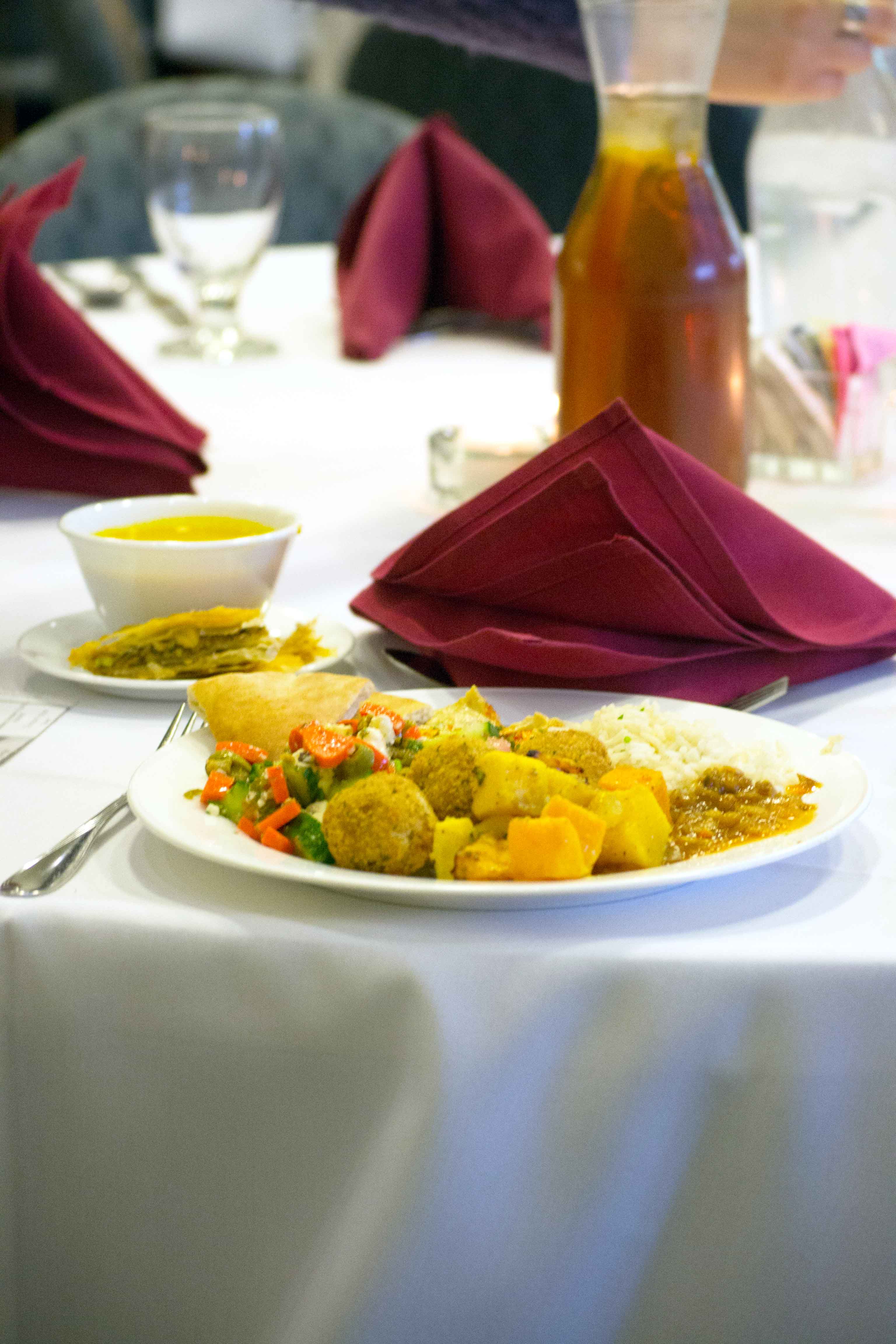
On Oct. 15 the President of the Muslim Student Association, Irema Halilovic, hosted an Eid al-Adha celebration in the Trimble Forum. Eid al-Adha, or “The Feast of Sacrifice,” is one of the biggest annual celebrations in the Islamic community. It celebrates the willingness of the prophet Ibrahim to sacrifice his son Isaac, and the mercy of Allah who gave him a lamb to sacrifice instead. At this celebration, traditional Arab cuisine was served including lamb, felafel and pumpkin soup.
The meal was presented as a cultural celebration rather than a religious one.
“It went exactly the way I wanted,” Halilovic said. “I wanted it to feel like a family dinner.”
Halilovic personally invited many of the students that attended, and several of them said they had no previous knowledge or expectations regarding the celebration. To them, this was an opportunity to enjoy a hearty traditional meal and to learn a little bit about Islamic culture.
During the meal, Halilovic stood up to explain the significance of the holiday in the Islamic community and shared what it meant to her. She described the ritual her family in Serbia performs on the holiday, which, for her family, includes the sacrifice of a lamb for the meal and traditional Eid prayers.
During the celebration, families with excess food share with less fortunate members of their community. This gesture reflects the sacrifice that the holiday celebrates. In order to reflect the spirit of sacrifice, Spirituality and Social Justice offered attending students several opportunities to volunteer in the community, feeding and clothing homeless people and underprivileged children in Tacoma. Many students signed up to take part in these activities.
The Muslim community is an underrepresented group at the University. In 2011, the Muslim community accounted for 23 percent of the global population, but Halilovic said that there were only about 10 openly religious Muslims at Puget Sound.
The disparity in these numbers makes non-threatening cultural experiences and celebrations especially important to prevent the University from becoming a wholly insular community.
The presence of dedicated students devoted to sharing their cultural identities, as well as the willingness of our community to talk and learn about those identities is an exceptional quality that Puget Sound maintains.

